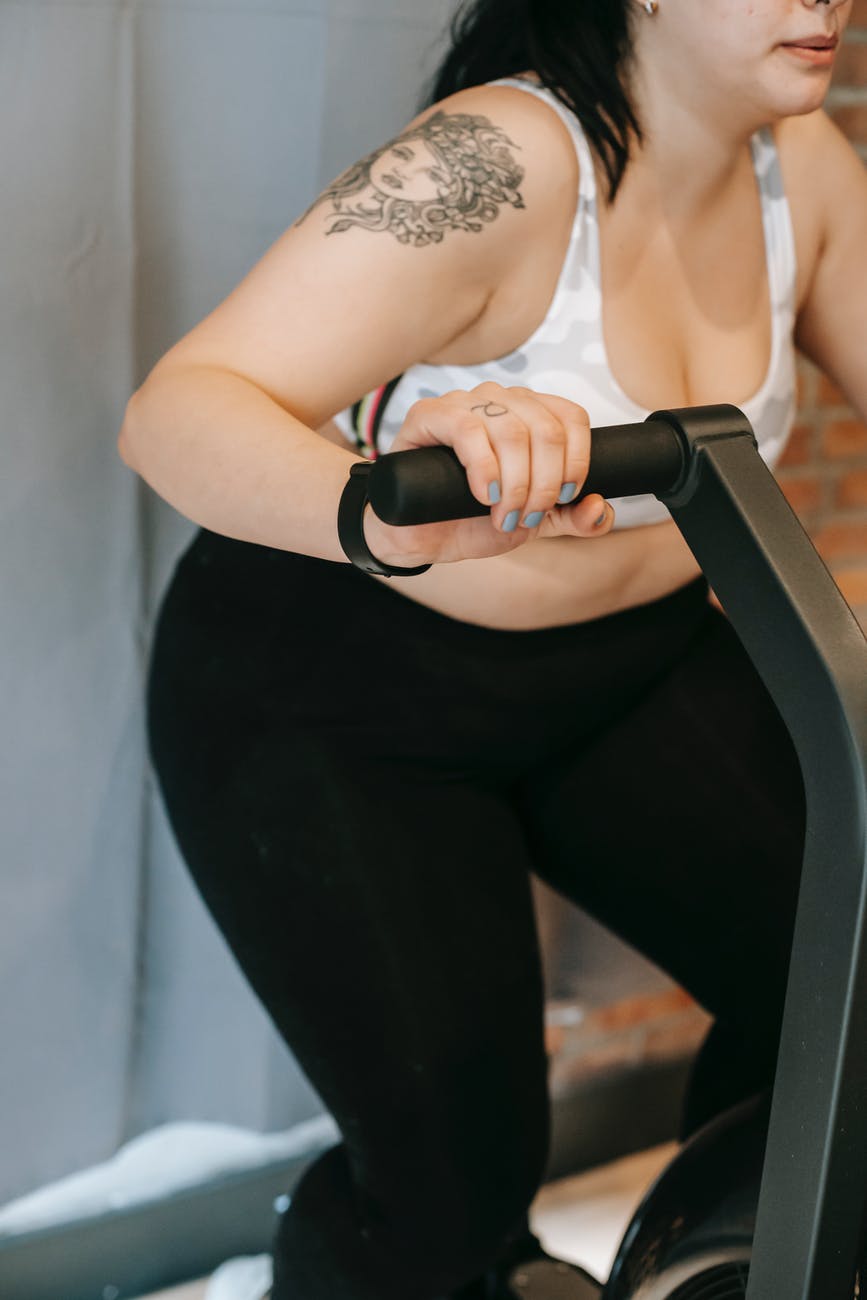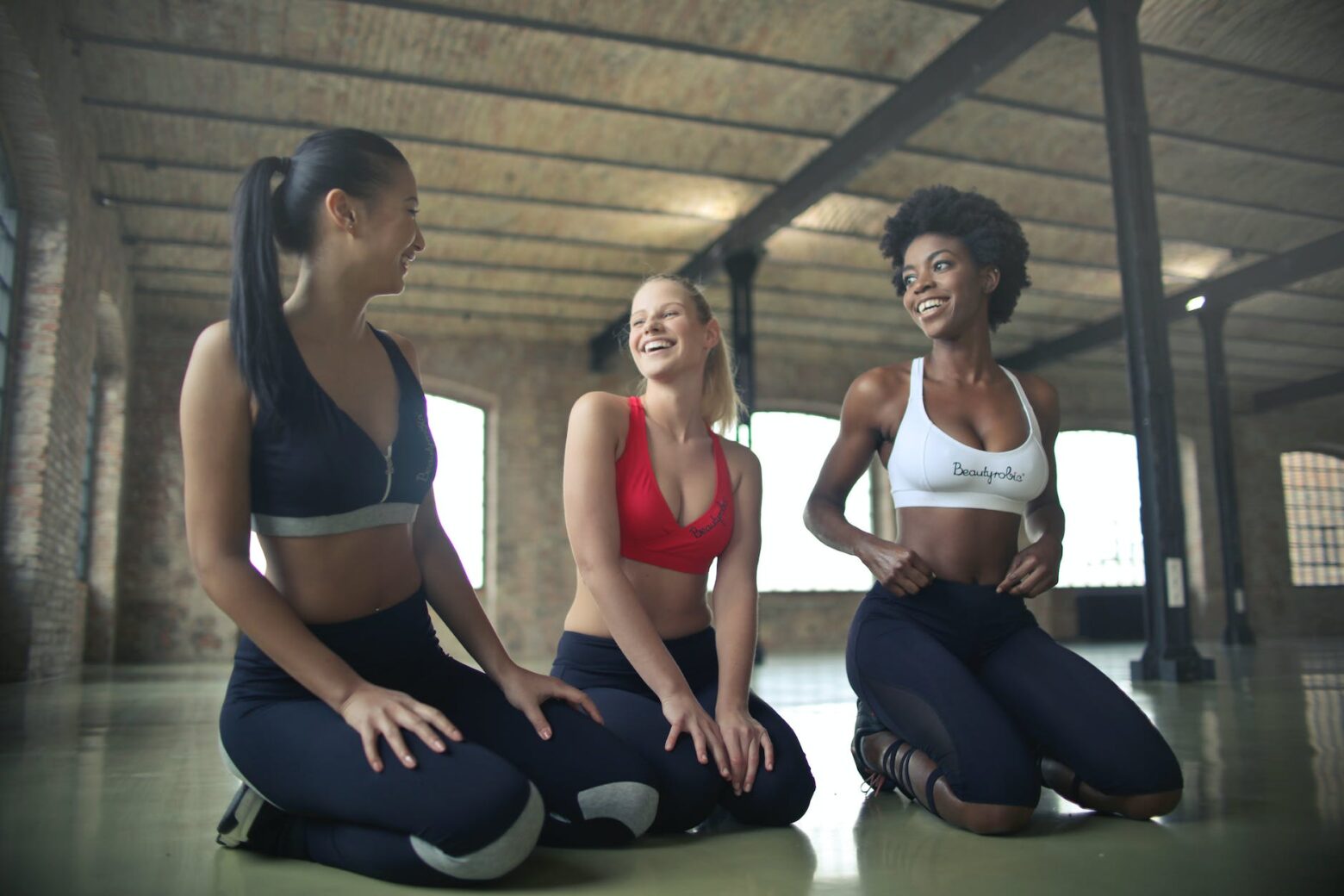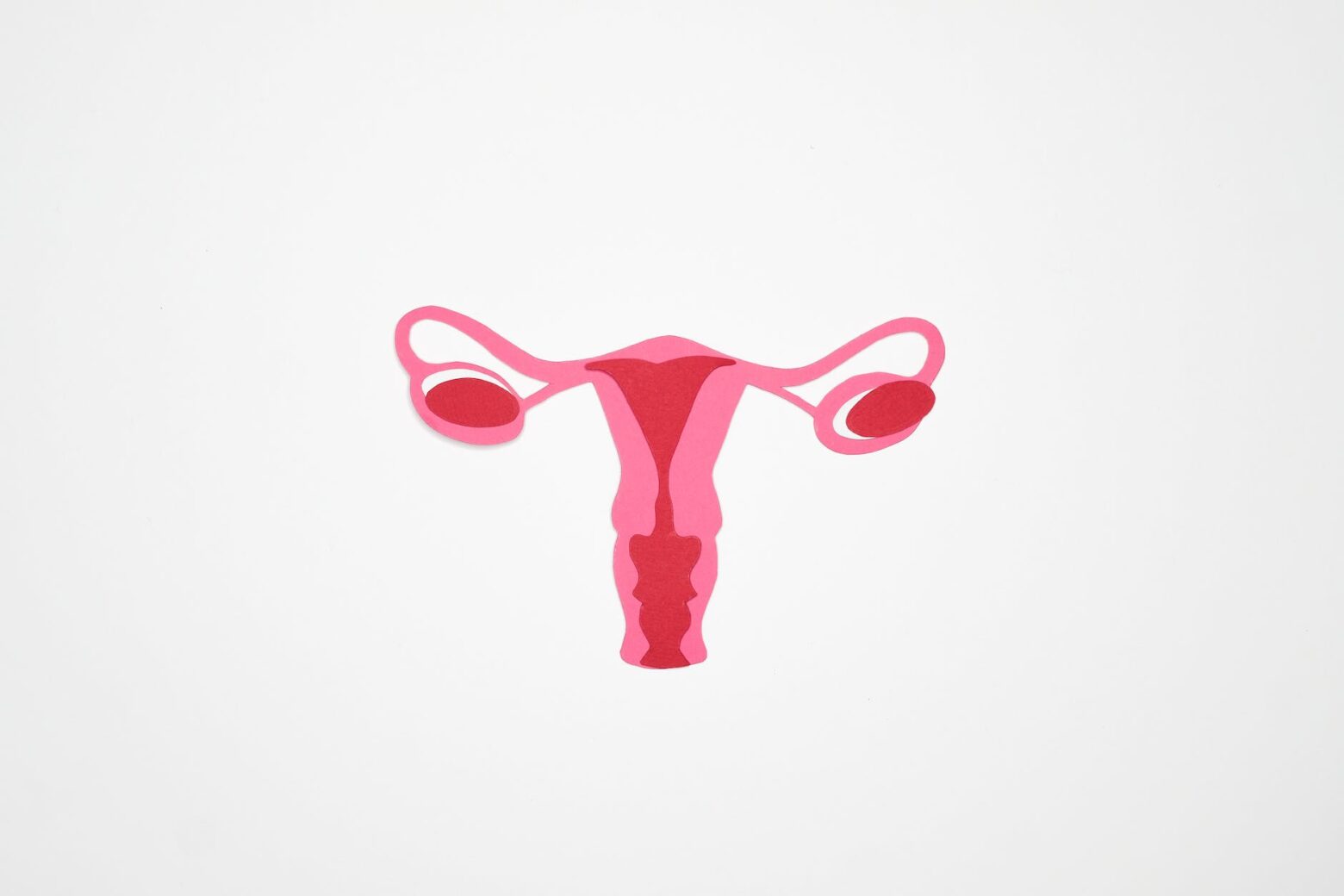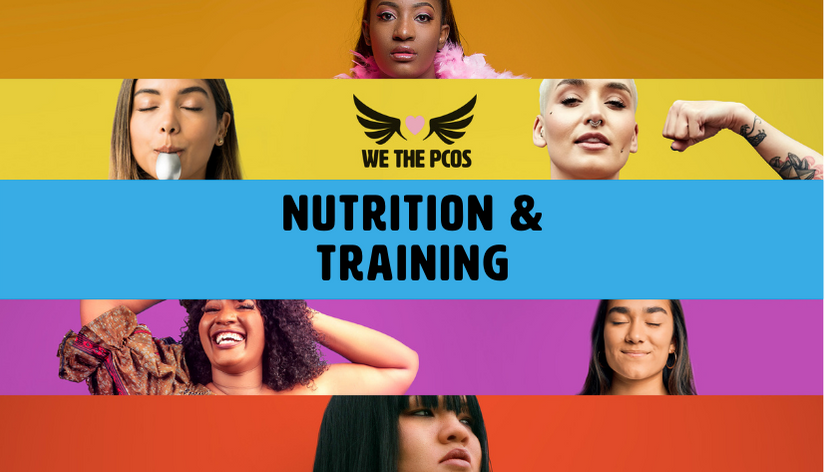When we say PCOS TRAINING, we’re referring to resistance training or ‘strength training.’ It’s the idea that you will use the muscles of your body to overcome a resistance and in doing so on a regular basis, your muscles become stronger. Bodyweight exercises, free weights, resistance bands, and gym machines all fall under the resistance training umbrella. Lifting weights helps you to burn calories and stored energy (fat) more efficiently, experts say. And strength training increases your lean muscle mass, which helps your body burn more of the energy you consume from food rather than storing it in fat cells.
Resistance training is priority #2 on the We the PCOS plan. First comes nutrition. Second comes resistance training. And 3rd comes cardio. You can still gain the benefits of resistance training if your diet is not in check, but one of our trainers explained it like this, “You can build big, beautiful, shapely muscles — like a gorgeous mountain range.
But as long as your diet is bad, the mountains will remain covered in a blanket of snow, AKA, fat.” We want to make sure our diet is in check so our lean, sculpted muscles get to be seen.
Benefits of resistance training:
- Improved joint function
- Increased bone density
- Better muscle, tendon, and ligament strength
- Improved muscle and strength tone
- Protection of joints from injury
- Maintained flexibility, mobility and balance – important as you age
- Weight management
- Increased muscle-to-fat ratio
- More fat-burning capacity while your body is at rest
- Greater stamina
- Improved posture
- Enhanced performance of day-to-day tasks
- Improved sleep
- More self-confidence, body image, and enhanced mood

Lots of women think cardio is king and if they eat a box of doughnuts, the answer is to jump on the treadmill for 2 hours and sweat it out! It doesn’t work like this. The answer is to stop eating the doughnuts and return to sensible eating on a regular basis.
Women also think that they can skip resistance training and just do cardio. That’s a hard no. If you are shaped like a lumpy pear (a lot of us are) and you’re eating for weight loss and you’re just doing cardio, you may lose fat. But your body will look like a slightly smaller lumpy pear. Resistance training reshapes your body completely giving you gorgeous curves, firmness, and strength. If you think that resistance training will make you bulky, you are also wrong. The amount of work you would need to do to bulk up is truly incredible. This will never ‘accidentally’ happen.
Progressive overload principle: Our go-to PCOS Training technique.
Now, this is important. We must strive to challenge ourselves when doing resistance training. To continue to gain benefits over time, resistance training exercises need to be done to the point where it’s hard for us to do another repetition. The weight you choose must be high enough to challenge you, while maintaining good technique. For example, if you are blasting through 10 bicep curls with a weight of 5lbs and you feel like you could do more when you finish, your weight is too low. No matter the repetitions assigned, you should be struggling on the last 2-3. If you are not, you need to “go up” in weight. Now if you are using 15lb dumbbells and you can only do 2-3 repetitions of a 10-rep set, then you need to go down on weight. Find the weight that challenges you so that you are really pushing through the last few reps or you can’t quite get them all in. Better to not get them all in than to lift too light.
As for maintaining good technique, you should be able to do the exercise using the correct muscles with good form. If you are doing bicep curls with a weight that is too heavy, you may find yourself using your hips and swinging your whole body in such a way as to hoist the weight up. This isn’t working your biceps and improper form with too much weight can risk injury. Better to go down in weight and use proper form.

Now, obviously this last paragraph was written by a woman. How do you know? Because we are talking about doing things properly and orderly and avoiding injury. Meanwhile, the free weight room is packed with men lifting weight that’s way to heavy for them to maintain proper form. And yet, they are sporting muscular physiques. Hmmmm… We’ll be the first to admit that there is benefit to lifting heavy, even without proper form.
But we’ll caveat that with this: After you’ve been lifting for a while, you know what your body can and can’t take. You’ll know what is challenging and what’s going to throw your back out. These men (and women) with heavy weight and bad form — they know their limits. And they know that lifting heavy and challenging themselves builds muscle. We recco good form to keep you safe.
Progressive overload means that you continue to ‘overload’ or challenge your muscles over time. In doing so, you will continue to build beautiful, fat-burning muscles that will give you a gorgeous shape.
Resistance Training + PCOS = PCOS Training
We admittedly do not put much stock in research and studies at We the PCOS, simply because it is expensive to do good research and there are a lot of conclusions from unreliable research floating around. That said, many scientists seem to back up what we have experienced, which is that resistance training and the development of lean muscle mass seems to aid in the burning of fat in women with PCOS.
When we search medical sites online, it seems that physical training, resistance & cardio, is strongly advocated to fight PCOS. But most of the sites agree, little information is available on which exercise regime is best. That said, there is increasing evidence that resistance training offers huge benefits to women with PCOS.

In particular, progressive overload resistance training is said to result in lowered plasma testosterone and fasting glucose levels. It aids in building lean muscle mass and helps reduce visceral fat, also improving hyperandrogenism, reproductive function, and body composition in women with PCOS.
Some studies suggest that resistance training when coupled with diet and cardio training can result in a significant decline in blood pressure, fasting glucose, insulin resistance, testosterone, and the betterment in ovulations and/or menstrual cycle.
We’ll stop with the research right there because we don’t feel confident endorsing any of these claims, except to say, ‘this is what researchers are saying.’ Whether or not it is true would require a thorough check of their testing methods. We submit that these ‘claims’ seem to support what we have personally experienced, and that is that resistance training makes you sexy. Lol. Just kidding. We would recommend resistance training for ALL women, and we would never leave PCOS ladies out of that equation because we all benefit from stronger muscles in terms of optimum health and wellness. As well as sexiness. 😉
More support from We the PCOS:
Are you reading about Progressive Overload and having fears of raising cortisol? No fear necessary. Read our post on how to manage cortisol while building strong, lean muscle mass.
Like and Subscribe to our We the PCOS YouTube Channel for supportive videos weekly on PCOS Nutrition, PCOS Inspiration, PCOS Training, PCOS Mental Health, and PCOS Accountability.


